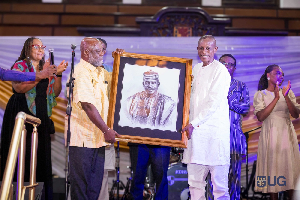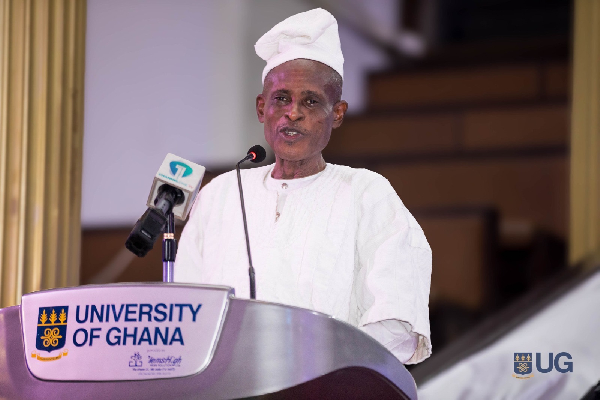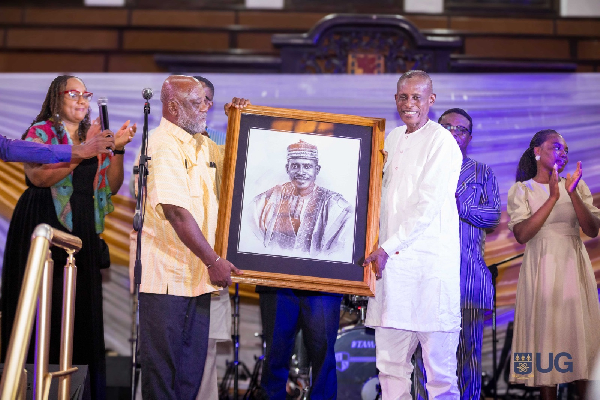 Dr Alhaji Abubakari Sidick Ahmed (in white) being honoured
Dr Alhaji Abubakari Sidick Ahmed (in white) being honoured
When I stepped into the University of Ghana three decades ago, I was simply a young dreamer with a pen, a passion for truth, and an unyielding desire to reshape narratives. I could not have imagined that this dream would become a legacy spanning thirty years—a journey rooted in mentorship, ethical journalism, and community transformation.
In 1993, together with courageous colleagues and visionary students, we founded Radio Univers. At the time, Ghana’s airwaves were tightly controlled. Independent radio seemed radical, even dangerous. But like the proverb reminds us — “The animal that dares the trap often escapes it.” So, we dared.
We had little — just a table, tape decks, and a transmitter we revered like a sacred relic. But what we lacked in resources, we made up for in resolve. We anchored our mission in values: mentorship over hierarchy, service over spectacle, and truth over popularity.
We built more than a station — we built a sanctuary of learning. Radio Univers became:
• A crucible for training future media icons
• A space where languages—Ga, Akan, Ewe, Hausa—danced through the airwaves
• A launchpad for civic education, research visibility, and student political discourse
• A reminder that journalism, at its best, listens before it speaks
We faced adversity. Scarcity, skepticism, and the overwhelming weight of expectation. But we held fast, guided by the wisdom of figures like Ali Mazrui, who reminded us that Africa’s strength lies not in strong men, but in strong institutions.
Through Legon Decides, we inspired student leaders. Through Media Review, we ignited national dialogue. Through radio sports, we birthed a new generation of storytellers and sports managers.
Today, the world demands more from media than ever before. Audiences have become creators. Platforms multiply. Noise threatens nuance. But the work hasn’t changed — it has only grown more urgent.
As we celebrate this milestone, I reaffirm my conviction: Journalism is not a passive observer of history—it is its architect. And the journalist? A builder, a bridge, and at times, a burden bearer.

To the students I have mentored, the journalists I’ve walked with, and the institutions I’ve helped build—thank you. The next thirty years call for even greater courage, ethical clarity, and mentorship rooted in empathy.
We didn’t just teach radio — we taught responsibility. And that, I hope, is a legacy worthy of our time.


